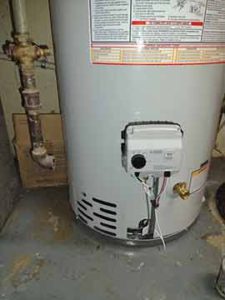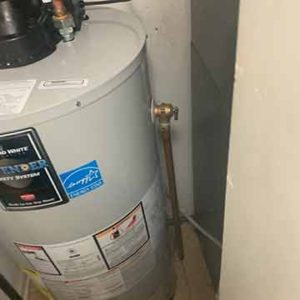How long should the water heater in your home last? This depends on a lot of factors. Everything in your home has a predefined number of years it is expected to last. This is the deadline before which you can get the best use out of the product. This date is set by the product manufacturer based on their assessment of how long the materials in the product will last.
But the manufacturer’s expiration date for their product is at best an estimate. The actual performance of the item depends on a lot of variables that are outside the control of the maker. Some of these variables include the environment where the item is being used, the amount of use it is subject to, and the quality of maintenance the product gets.
All these play a role in extending or shortening the lifespan of a product. For water heaters, a traditional appliance lasts 8-12 years, while a modern one can serve you for 20 years. But as Phoenix Property Management explains, your water heater can last a few years longer than anticipated or it can fail many years before the end of its projected lifespan. How long the water heater lasts depends on the following…
Factors affecting the lifespan of your water heater
The type of water heater
The two main categories of water heaters are tank water heaters and tankless water heaters. In terms of longevity, tankless water heaters are better. A tankless water heater can last anywhere from 20 years to 30 years.
This is double the life of a tank or storage water heater. The reason for the longer life of a tankless water heater is partly due to the fact that it does not need to store water and is, therefore, less susceptible to some of the factors affecting tank water as discussed below.
The quality of your water heater
Cheap water heaters have a shorter life because manufacturers use lower-quality materials in those products. Conversely, water heaters with porcelain casing or larger anodes are costlier because they are less likely to rust.
Models with a self-cleaning function will also last longer and therefore cost more. One way to determine the quality of a water heater is the warranty, a longer warranty indicates quality construction.
Incorrect installation
Water heaters need to be installed in a specific way and in the right environment for them to function properly and last a long time. Typically, the water heater should be installed upright in a well-ventilated part of the home.
It should not be in proximity to areas prone to flooding or high humidity. The competence of the installer and the location of the water heater plays a big role in its lifespan.
Water quality
If the water in your area is hard, the incidence of limescale inside the water heater increases. Limescale is a residue left behind when hard water evaporates; it is mostly made of calcium and magnesium.
Limescale interferes with the ability of a water heater to heat cold water and accelerates its expiration. Another issue related to water quality that can harm a water heater is clogging due to sedimentation.
Water pressure
Water pressure can be too high or too low, but most people are only familiar with low water pressure. That’s because we can see when water pressure is low, it does not let you get water out of the shower or faucet at the rate you want. But as annoying as it is, low water pressure is mostly harmless.
The real issue is when water pressure is too high. High water pressure will destroy the water-using appliances in your home, including the water heater.
Rate of water heater usage
Quite naturally, a water heater that is subject to a lot of use is likely to reach the end of its lifespan faster than one that’s used minimally. The volume of hot water the water heater produces determines the level of stress its components are subjected to. More water also increases the probability that your water heater will rust.
Signs that it is time to replace your water heater
If you notice the following problems with your water heater, it is time to replace it.
Strange sounds
If the water heater makes strange gurgling sounds when you use it, it means there is sediment in the tank. A water heater that behaves this way is a danger. It is likely to overheat and explode.
Persistent dampness
If your water heater is always damp, there is moisture build-up around the device. Problems like this could indicate a leak.
Insufficient hot water
If the water heater is not producing enough hot water or any hot water at all, it may be time to replace your water heater.
Discolored water
If the water coming from the water heater is colored, your water heater has a serious problem of rust.
Water pooling
Puddles of water on the floor below the water heater mean you have a badly leaking appliance that needs to be replaced ASAP.

